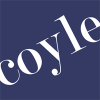Last week we talked about Google. While we’re on the technology bandwagon, let’s talk about another icon of vision and innovation: Apple.
Yet, unlike Google, which seems to have an infinitely upward trajectory toward success, Apple has floundered a bit. (In the vein of Kevin’s coverage of Kanter last week, everything can look like a failure in the middle.)
What is apparent from both Google and Apple is that leadership does matter. Without Larry Page and Sergey Brin’s ongoing input, would Google be foraying into renewable energy? Likewise, without Steve Jobs playing such an active visionary role in Apple, would the iPod and iPhone have ever come into existence?
In this portfolio.com article, the author provides a snippet of a 1996 interview with the then-CEO of Apple, Gil Amelio. To provide some context: in 1996, Apple was failing desperately, but Amelio had a plan. By 1997, Amelio was ousted, and Steve Jobs took over once again. (This future turn of events sure does color the way you will read the 1996 interview.)
The fact of the matter was, Amelio did not fit the Apple culture. More specifically, he was not Steve Jobs.
Within a matter of months of his reinstatement as CEO, Steve Jobs announced a partnership that stunned Apple evangelists yet likely solidified the company’s success. He is quoted as saying the following, which was noted in wikipedia:
If we want to move forward and see Apple healthy and prospering again, we have to let go of a few things here. We have to let go of this notion that for Apple to win, Microsoft has to lose. We have to embrace a notion that for Apple to win, Apple has to do a really good job. And if others are going to help us that’s great, because we need all the help we can get, and if we screw up and we don’t do a good job, it’s not somebody else’s fault, it’s our fault. So I think that is a very important perspective. If we want Microsoft Office on the Mac, we better treat the company that puts it out with a little bit of gratitude; we like their software.
So what can we learn from the company that turned more than 300 people into millionaires following its IPO? We can understand that while leadership may initially create vision, vision ultimately fuels leadership. A brand is more than a person, and it is also more than an era. A brand must be both timeless and faceless, yet authentic and compelling.
If Hard Rock needs leaders who love Rock and Roll, and Ritz Carlton needs leaders who would bend over backwards to Wow a guest, then Apple clearly needed a leader who understood his followers’ desires and respected the heritage of the brand, while carefully guiding the product line toward the next millennium.
Read the portfolio.com article here.













